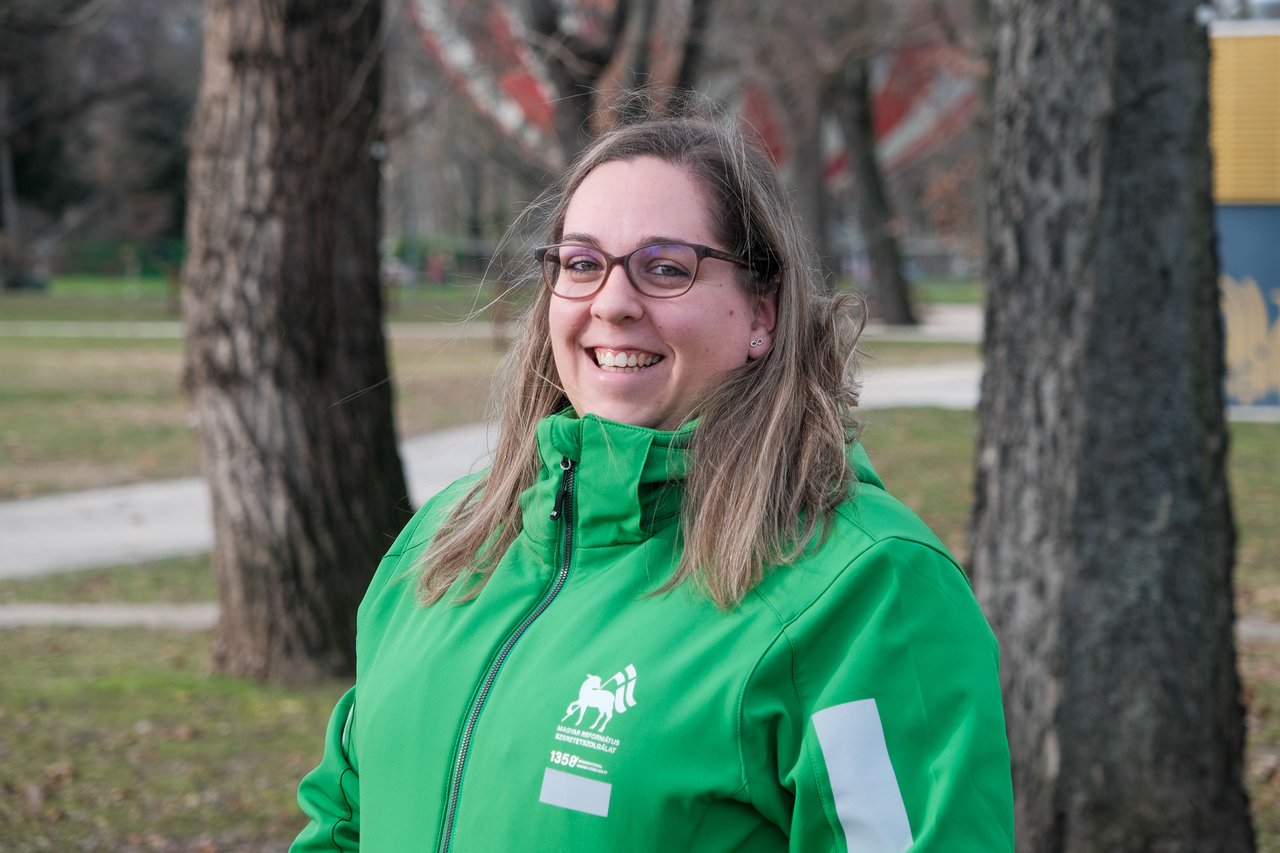“The participants unanimously admit that the volunteer year made them braver and more creative. The experiences were life-changing and enriching for them,” summarizes Krisztina Csordás, project manager of the Voluntary Diaconal Year Programme Office. This is also a place to visit for people who want to do voluntary work, those who are looking for short-term assignments.
The Voluntary Diaconal Year is a Reformed initiative. What has brought it to life, and how are faith and religion manifested during this time?
Our goal is to provide opportunities for short and long-term volunteering for young adults between the ages of eighteen and thirty who desire to serve God and their fellow human beings. During this time, young people are on a spiritual journey: learning about themselves, the world, and God as the Creator transforms their lives. Our office operates under the auspices of Jobbadni Nonprofit Ltd., owned by the Hungarian Reformed Church Aid, supporting volunteers to experience and help individuals, cultures, and societies live in a more just and loving world.
The Voluntary Diaconal Year Programme Office has more than twenty years of history. During this time, how many volunteers have gone abroad, and how many have come to Hungary?
Over the past two decades, the Programme Office has made a significant contribution to the international experience of young people, giving around 1,500 young people the opportunity to serve on their own initiative: 500 have done so in Hungary, while 1,000 have been given the opportunity to serve abroad. With the support of the Office, participants have experienced the joys and trials of selflessness in many countries. Our aim is to make them active participants in society while learning about themselves, the world, and God.

Krisztina Csordás
Photo: jobbadni.hu
What are the tasks for applicants?
We offer opportunities for volunteers to work with children, adults, disadvantaged young people, older people, people in social need, the homeless, and minorities. This gives each volunteer the opportunity to choose the most meaningful and appropriate area for their interests, skills, and commitment.
What are the experiences of the volunteers at the end of the year?
The programme has made a huge impact and positive change in the lives of those who have participated. They are unanimous in saying that the voluntary service has made them more courageous and creative and that the experiences have been life-changing and enriching. In the process of selfless service, many have realised that, although they came to help others, they ended up getting much more than they bargained for. They claim that the service not only shaped them spiritually but also developed their personalities. Revisiting and changing their preconceptions and previous beliefs has definitely tested them, but it has also made their lives more valuable and diverse. Voluntary service not only helps others but also enriches the lives of those who undertake it, making them richer and more colourful.
ALUMNI
A closed Facebook "alumni group" has been set up for the participants of the Voluntary Diaconal Year, where former participants are welcome to join. It's worth signing up, as there have been many occasions when old alumni have been chosen as mentors for new young people. This year, the office is organising a personal meeting for former volunteers.
How many times can someone volunteer?
There are two different options available in the programme. On the one hand, we offer a short-term service of up to two months. This option can be used several times without any limitation. On the other hand, long-term service is available, ranging from two to eleven months. Important: each volunteer can only participate once in the longer programme. Both options emphasise the flexibility and diversity of the programme, allowing volunteers to choose the type of service they wish to participate in according to their individual circumstances and preferences.